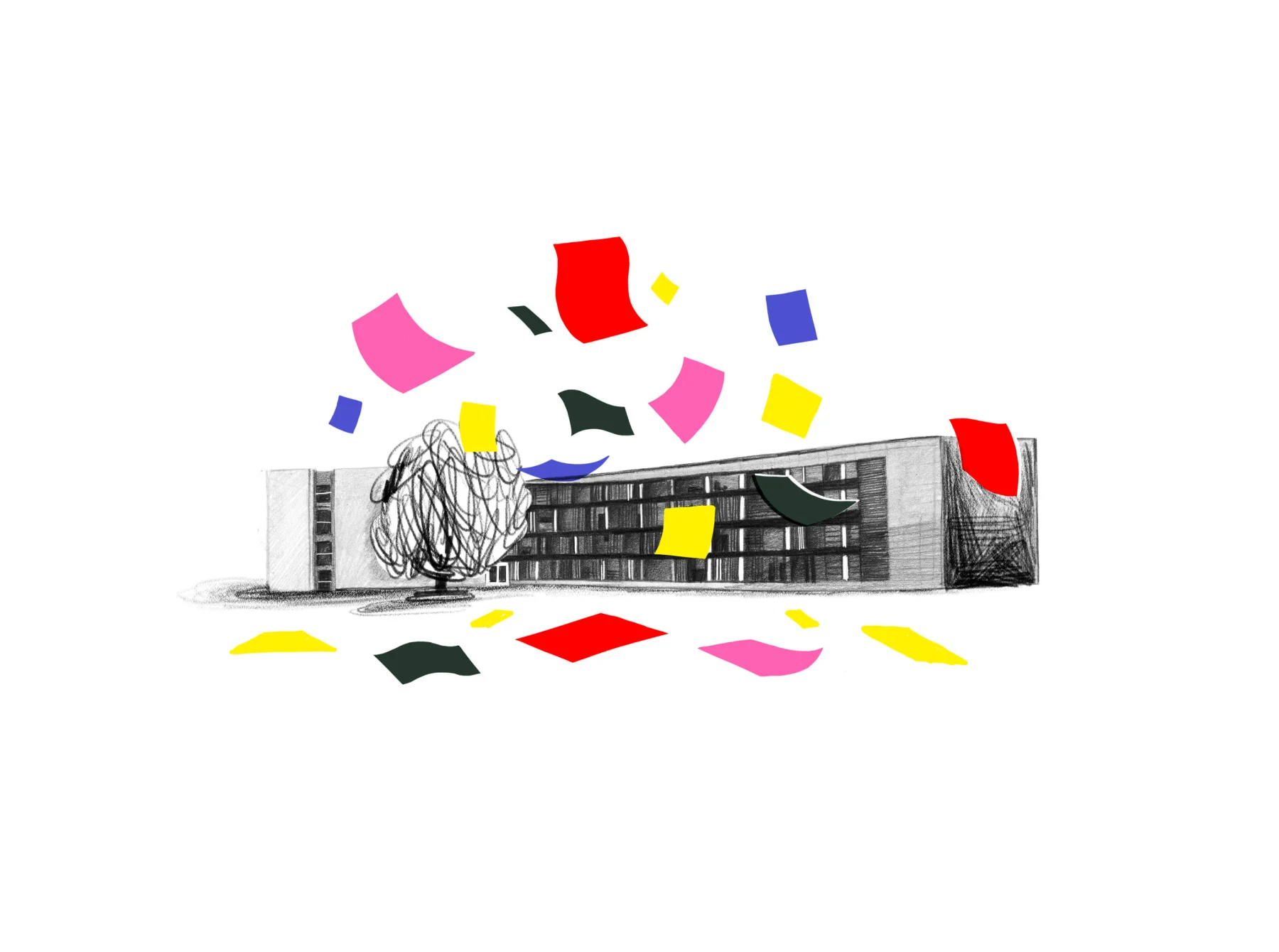

Creative education is vital. But creative education is, in places, broken. So WeTransfer has long been interested in supporting new types of programs.
It’s why we helped Nelly Ben Hayoun launch The University of the Underground, a free masters course that uses design thinking to challenge the way the world works.
From there, we developed the Pioneers list. Working with our pals at Creative Lives in Progress (formerly Lecture in Progress), we have identified eight schools around the world who deserve credit for doing things differently. See the whole list here.
Berklee College of Music, located in Boston, Massachusetts, was founded on the principle that "musicianship could be taught through the music of the time." Established by Lawrence Berk in 1945, Berklee – named after his son, Lee Berk – was the first school in the USA to base all instruction on jazz. Its alumni include such notable names as Quincy Jones, St Vincent and John Mayer, and 120 graduates who between them have received 283 Grammy Awards.
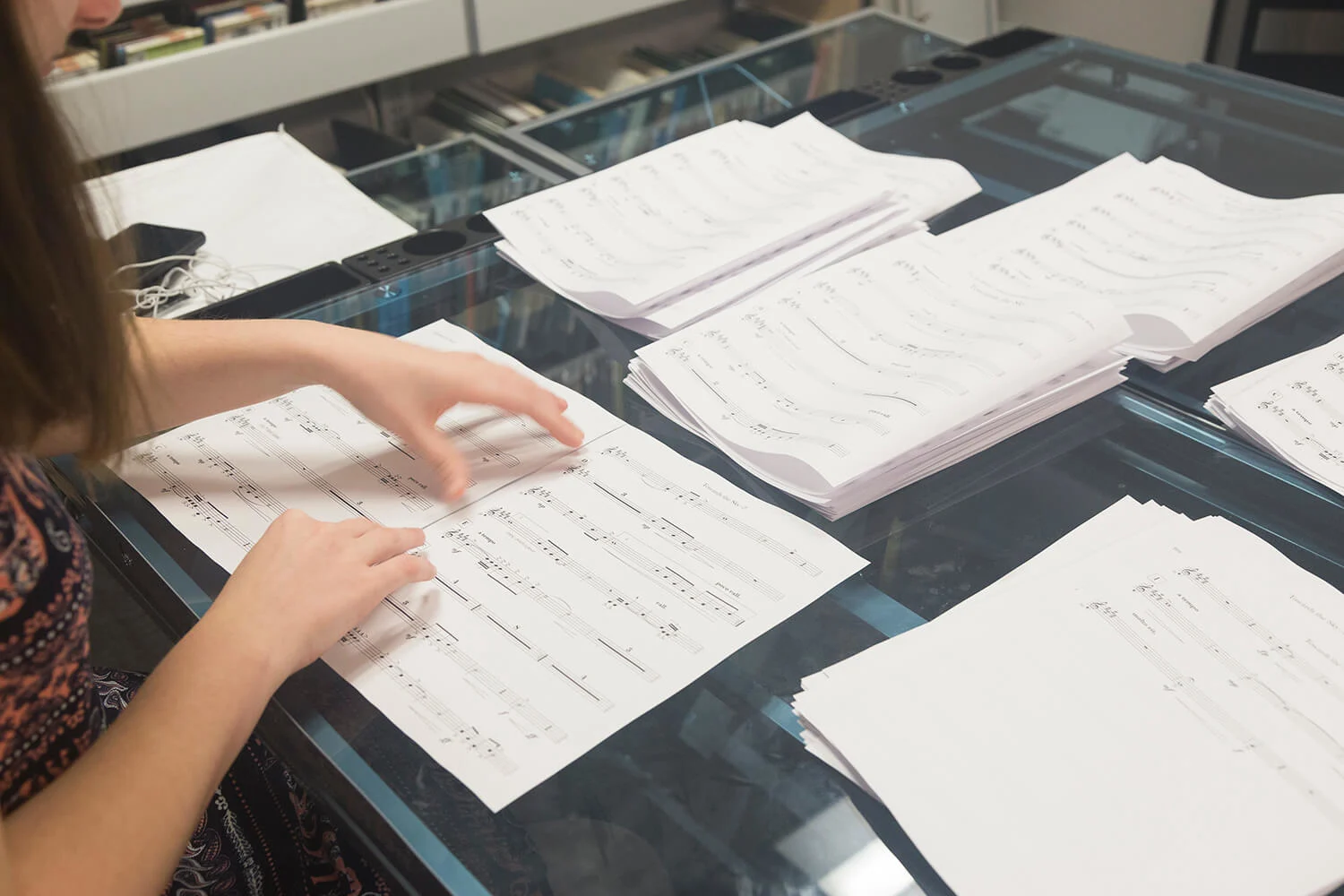
And while it's grown to become the largest college of music in the world, Berklee has also maintained its pioneering status – from recognizing the guitar as a principal instrument in the 1960s, to establishing the first college-level major in music synthesis (using synthesizers) in 1984.
What started as a music synthesis major in the 1980s is now an entire department, renamed Electronic Production and Design (EPD), offering courses that range from Circuit Bending and Physical Computing to Audio for Virtual Reality and Immersive Environments. Headed up by department chair Michael Bierylo, EPD has remained at the apex of technological innovation, with the pace of musical evolution almost built into the curriculum.
"The only thing that’s really a given in our field is that things will change," Michael says. "The software you learn in school may not be around five years from now." As technology moves forward, Berklee has become "the beachhead for new things." In the case of its latest advancement, Electronic Digital Instrument (EDI) – which will launch in 2019 – Michael, and Berklee, are considering how one can perform with a computer-based system on an equal footing with other musicians?
The only thing that’s a given in our field is that things will change. The software you learn in school may not be around five years from now.
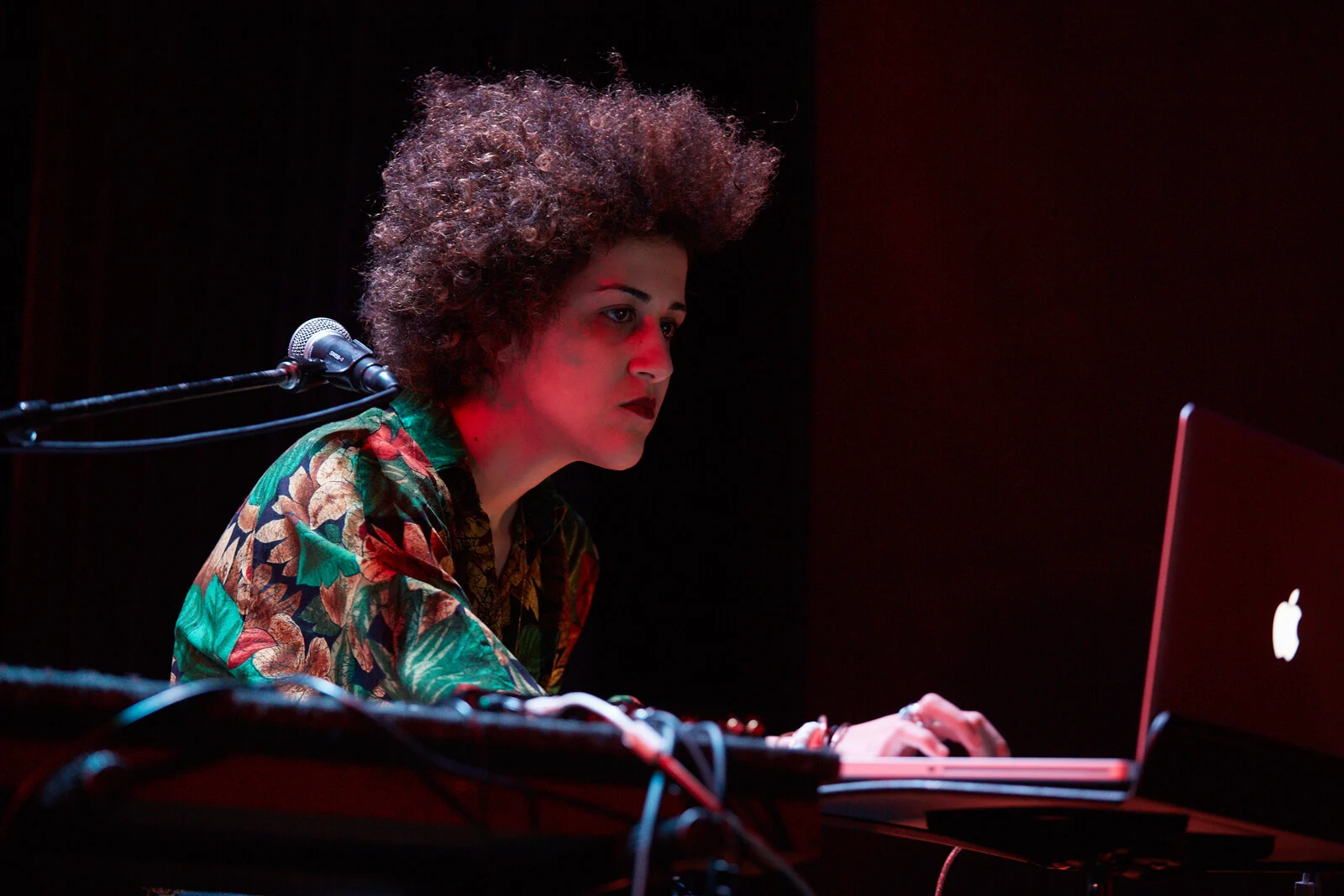
"It's early days," Michael says. "If you were to compare (a computer) to a keyboard, we’re in the equivalent of the 1400s in terms of understanding our instrument and its limitations."
The computer, more than being an instrument in itself, is a device that serves as a platform for building instruments. And unlike say the piano, with its long arc of musical history, there are very few precedents when composing music using a computer. EDI sees this predicament as having great creative potential, in terms of composition, production, performance and the definition of mastery. "It’s defined by individuals who approach the same world in different ways," Michael says.
At Berklee, there’s a constant back-and-forth between rigor and innovation, and this relationship finds balance in what Michael calls his "playground" – comprised of EPD labs, production suites, machine room, recital halls and performance labs.
And while on the one hand it's all about change, Michael doesn’t discount the importance of context. "It's important in any artform to understand what’s gone on before," he says. "We have centuries of meaningful works that have moved people musically, and having a new tool or a new paradigm doesn’t mean that you walk away from those things. Elgar still works. If you need something to play at a national mourning, Elgar rocks!"
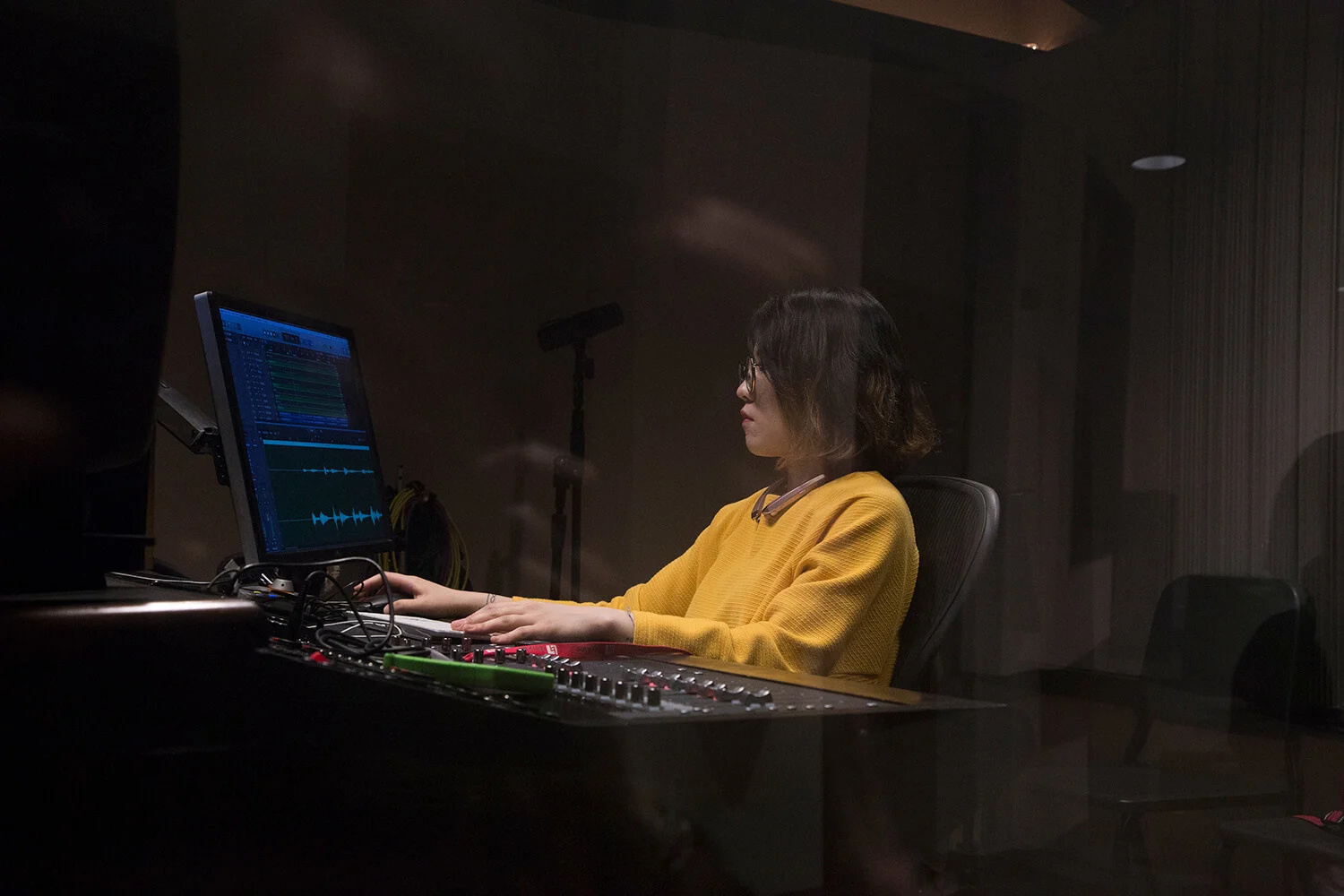

There’s a strong case to be made that the traditional notion of learning music by playing and performing is not the only way to do it.
The "playground" principle works just as well for those working with more traditional instruments. "There’s still innovation in classical music; conductors have different ways of viewing the same composition. Who's going to push things further by breaking a few rules?" Michael says.
It's an interesting and important question for the college and its students, and one that informs the discussions around how and where to innovate, and how to adapt.
"There's a strong case to be made that the traditional notion of learning music by playing and performing is not the only way to do it," Michael suggests. "In the future I'm seeing a time where students will be admitted on the basis of how they produce music, and how they navigate musical worlds on their computer."
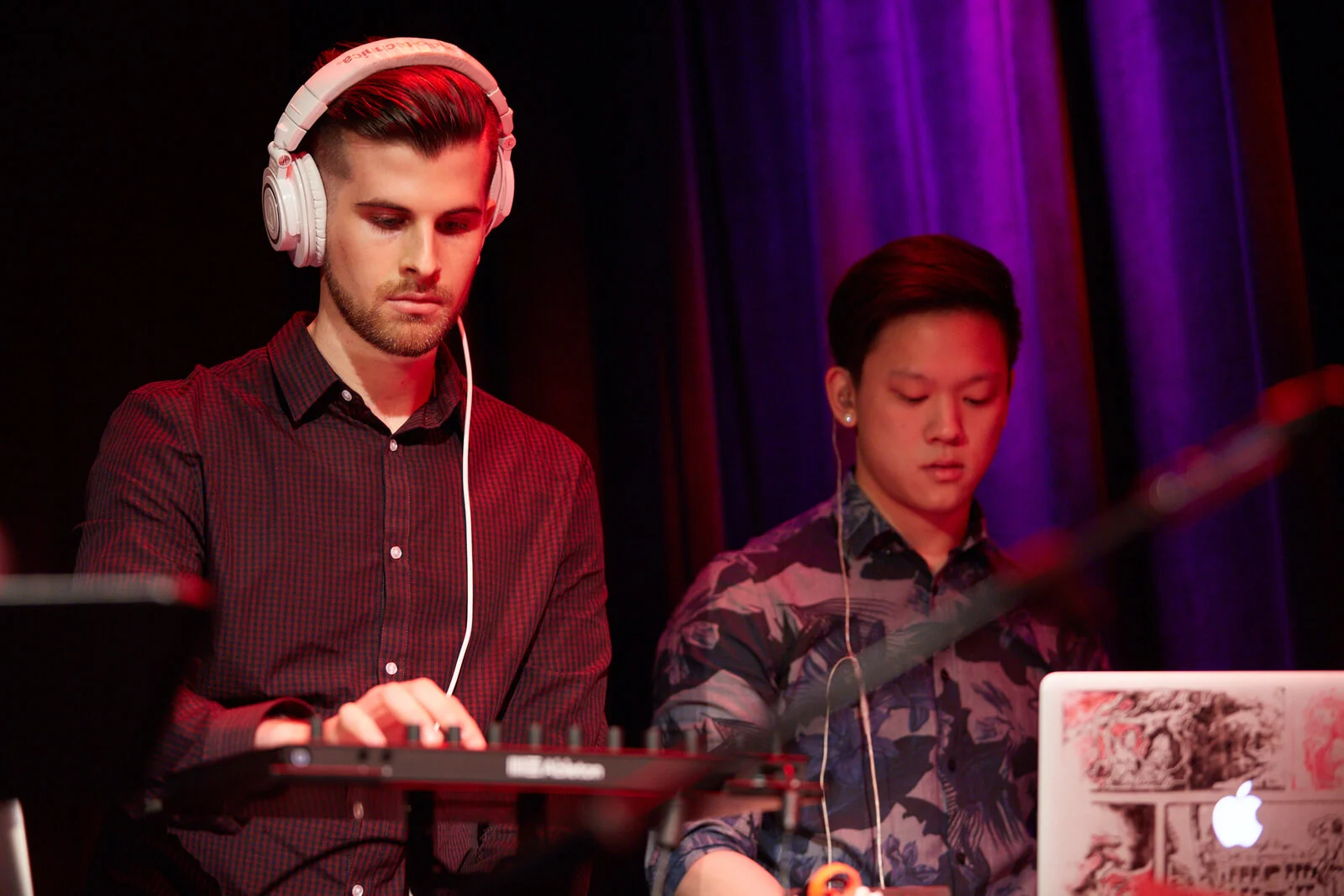
The idea of instrument design in the context of EDI flips the paradigm for both music and music education. When working with an electronic digital instrument, the player "teaches" the instrument the sounds and gestures they want to achieve.
"In the early days of synthesis we used traditional instruments as our models. Can we make a flute sound? Can we make a trumpet? That was really the gold standard," Michael says.
Now, the terms are far more abstract. "What’s the density of the sound? What’s the velocity of sound objects? When you look at it like that, the whole idea of the instrument gets blown out of the water."
Another key question for EDI is how to navigate the fact that both composition and production occur in the same space – on the computer – which goes against the traditional model of recording live music in a studio.
"Now, production is part of composition," Michael says. "The instrument is used to compose, produce and perform. It’s an interesting place that we’re in, it’s kind of a no man’s land, which is cool!"
It’s important in any art form to understand what’s gone on before.
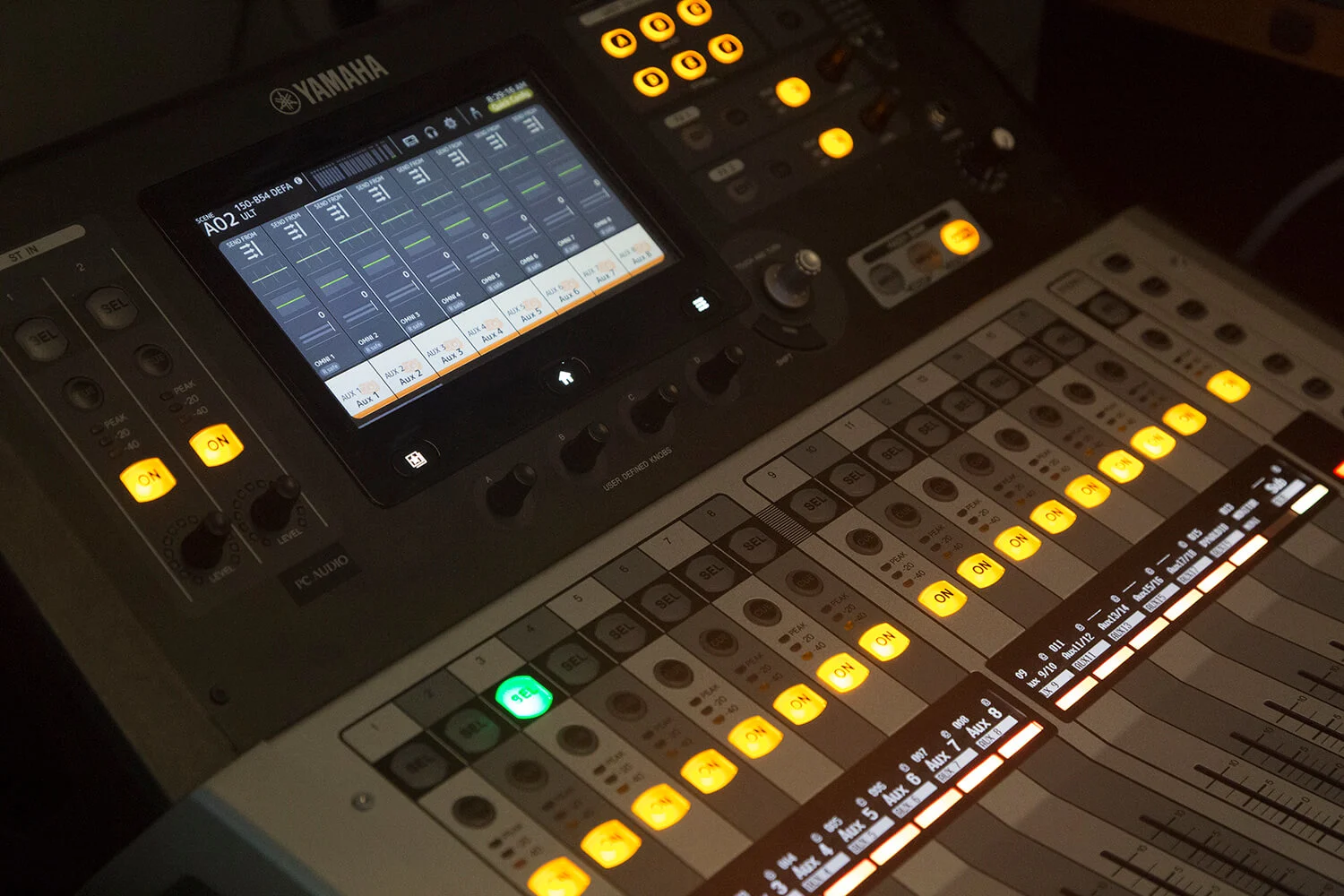
Looking at Berklee in the context of the US education system – which isn’t without its complications, namely financial – it has various initiatives in place to address roadblocks. Everyone who auditions for admission is automatically considered for scholarship and 65% of Berklee students receive financial aid.
Representatives from the college – in the US and internationally – travel to hold auditions; and there's a diverse range of scholarships from specific donors for students with particular backgrounds and abilities.
In 2017, Beyoncé endowed the college with the Beyoncé Knowles-Carter Formation Scholars Award, which supports "young women who are unafraid to think outside the box and are bold, creative, conscious and confident."
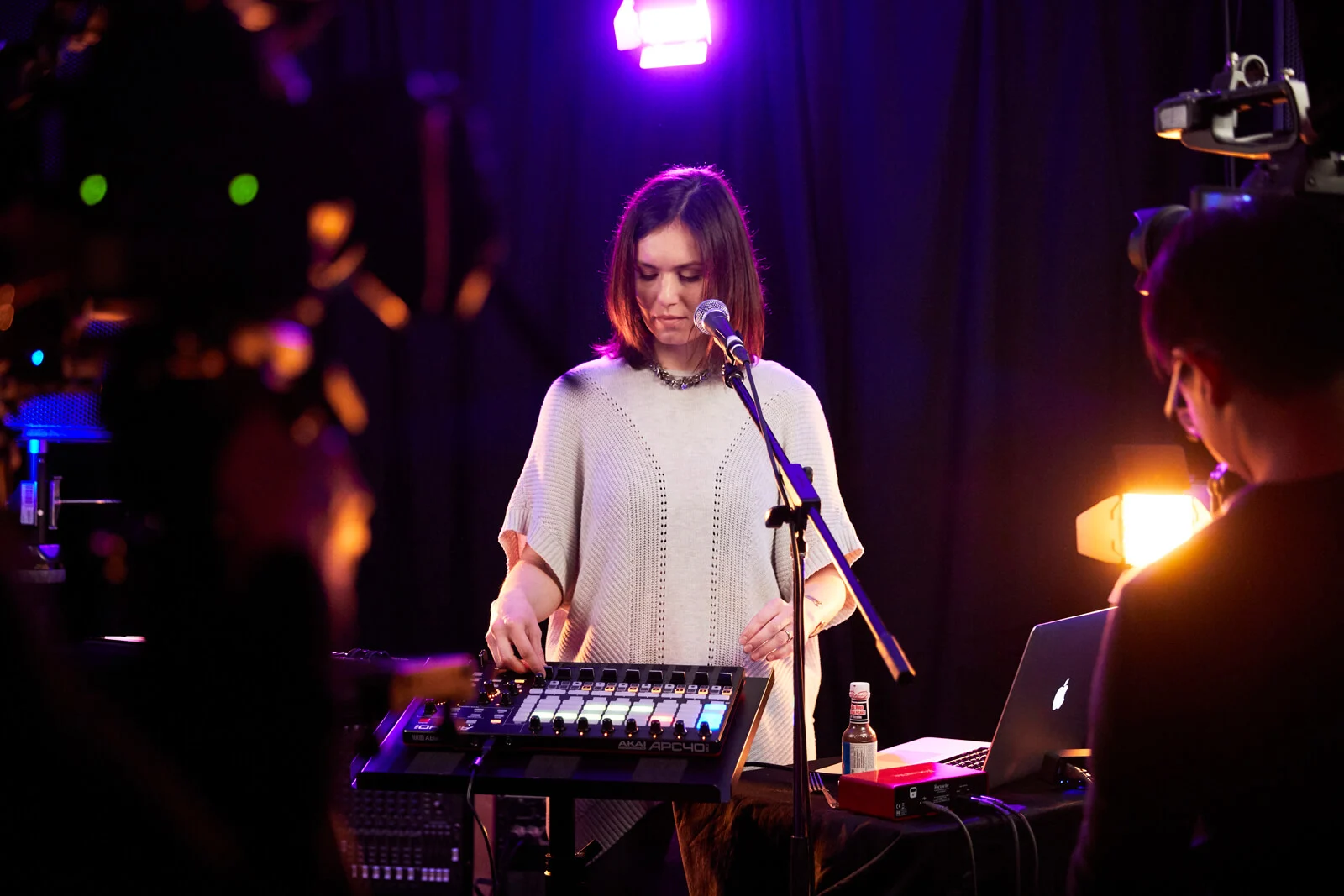
Another discussion taking place at Berklee is about hip-hop, and it couldn't be more timely considering Kendrick Lamar’s recent Pulitzer Prize for music. The college has historically been at the forefront of change when it comes to the introduction of new principal instruments, technologies and genres, as well as new definitions of achievement.
"If you compare John Coltrane to Hank Shocklee and you don’t know the context, it goes over your head," says Michael. "But if you understand the music and the goal, you understand the underlying mastery of it."
The challenge is to find that balance between respecting the old and embracing the new. "It’s the same thing that every generation goes through," says Michael. "The older generation will always think that popular music is trash. We don’t learn from history."
Words by Billie Muraben
Photos by Claire Beckett
Additional photos by Kelly Davidson
Illustration by Jordan Andrew Carter
Name: Berklee College of Music
Location: Boston, Massachusetts, USA and Valencia, Spain
Director: Roger Brown
Courses Offered: Undergraduate majors in Composition; Contemporary Writing and Production; Electronic Production and Design; Film Scoring; Jazz Composition; Music Business/Management; Music Education; Music Production and Engineering; Music Therapy; Performance; Professional Music; and Songwriting. Berklee also has a Valencia campus focused on music business and technology; an online school; a range of summer programmes; and recently merged with the Boston Conservatory
Notable Alumni: Quincy Jones, St Vincent and John Mayer; 120 Berklee alumni have received 283 Grammy Awards




